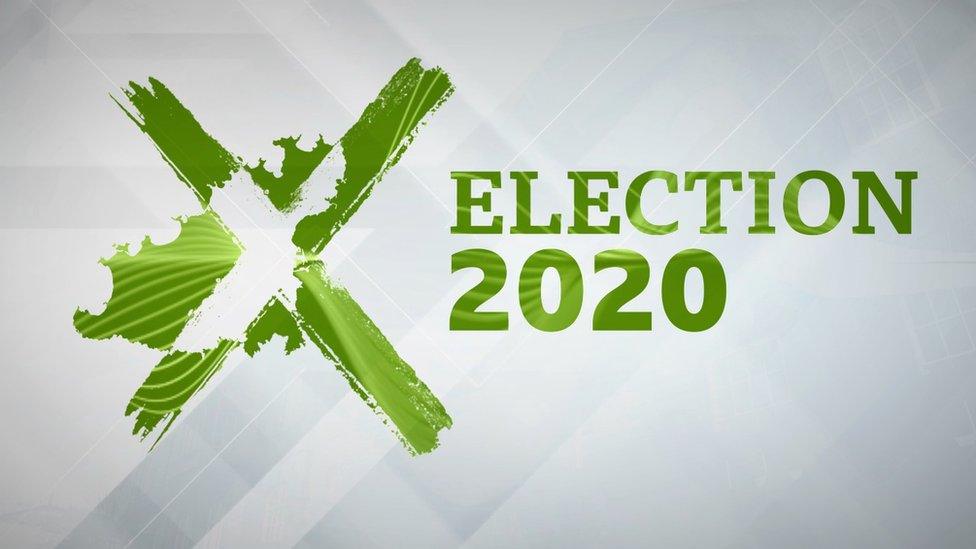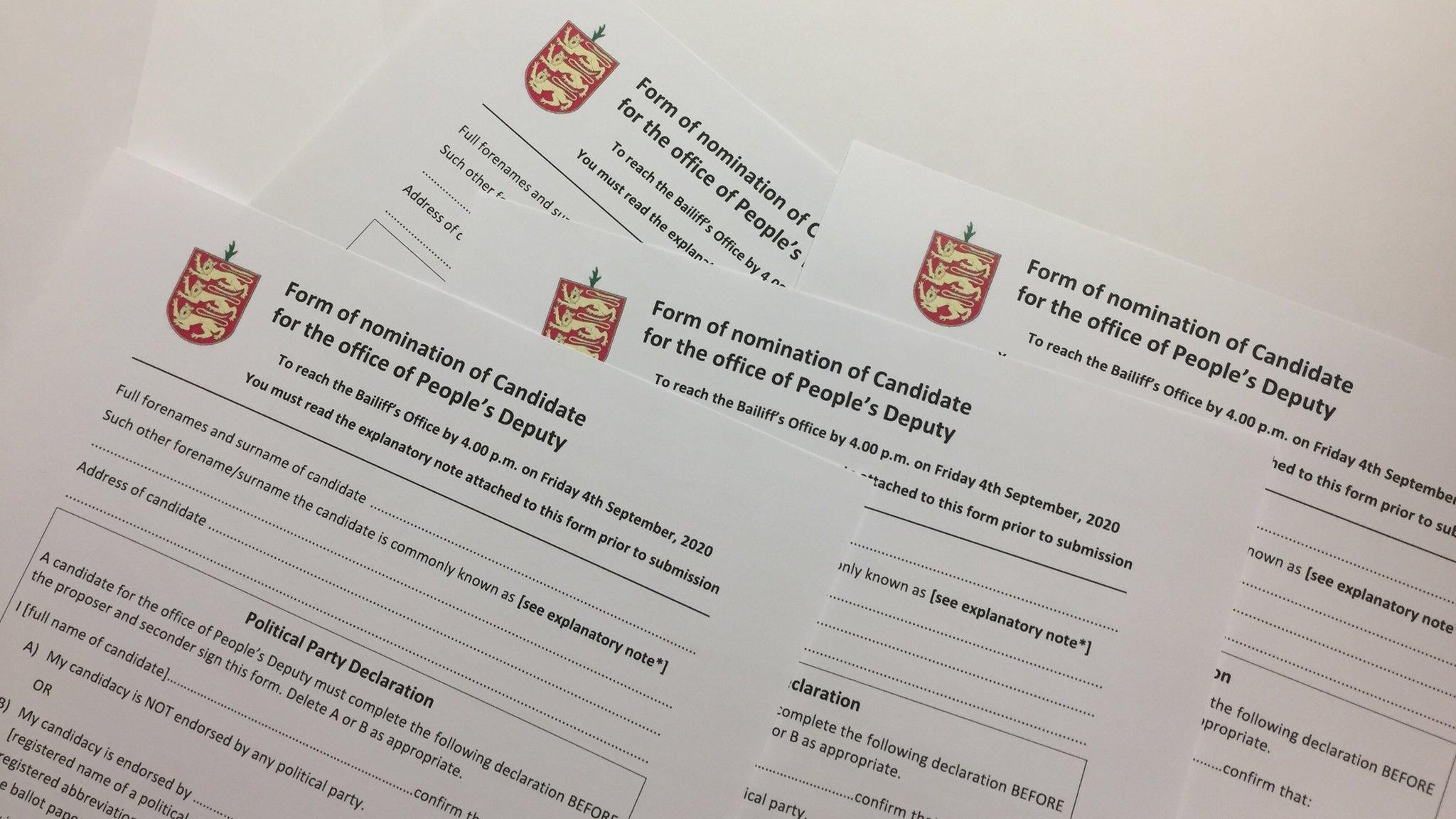Guernsey Election 2020: Covid pandemic recovery
- Published

The States of Guernsey has approved a "revive and thrive" recovery strategy from the coronavirus pandemic.
The framework includes , externalinfrastructure investment, examining work permits, travel links and a review of taxes and public services.
As part of this strategy, deputies approved up to £650m generated from borrowing and States reserve.
The economy is expected to fall by about £300m in 2020, taking more than a decade to recover without investment.
As part of our election coverage, the BBC offered all candidates a chance to comment on a key issue.
How should the States approach recovering from the economic damage of the pandemic?

Neil Inder said: "What the government can do is use its spending power within the economy.
"For example, I would immediately direct, where practicable, all procurement spending diverted to local companies.
"More work needs to be conducted on sea defences and infrastructure.
"The process of capital bids is cumbersome, a new Policy and Resources needs to speed that process up significantly."

The Alliance Party responded: "We need to keep the economy buoyant and the mood positive.
"So, no tax increases for the majority, no new taxes, review top levels of civil service expenditure, invest in maintenance and repair of our existing infrastructure, invest in digital infrastructure, work to diversify the economy."

Martyn Roussel said: "The States should avoid propping up lame ducks.
"In the short term it must borrow but it is too soon to raise taxes. That will come later.
"It is also vitally important to maintain the trust of our community with clear communications and transparency."

Christopher Le Tissier, from The Guernsey Party, said: "Yes, we need to recover and do it as quickly as possible using the bond and the £250m facility until the growing economy provides more income to the States.
"Encouraging more visitors using Aurigny as an economic enabler.
"Improvements to the harbours.
"Infrastructure repairs and upgrades e.g. seawalls, buildings, and fibre island-wide."

Scott Ogier, from The Guernsey Partnership of Independents, said: "Invest in certain sectors of the economy to ensure a buoyant bounce back and bring forward infrastructure investment to promote growth and boost employment.
"Fibre-optic cabling should be available to businesses and homes to turbo-charge our digital economy, attracting high-tech companies who rely on super-fast internet speeds, diversifying our economy and widening our tax base."

Jon Wilson said: "By changing from 'caretaker' status to unleash innovation, promote better work-life balance and dismantle bureaucracy to achieve positive impact.
"Government and businesses should collaborate to rebuild a stronger, more independent Guernsey.
"Businesses here are functioning and can compete, relatively strongly, in the international marketplace.
"Government should assist wherever possible."

Andrew Taylor said: "With eyes wide open, ears tuned in and a firm hand on the purse strings.
"Misdirected generosity is a wasted opportunity to do something meaningful.
"Do we need to spend big? Maybe.
"But we'd do well to support our small businesses, charities and the environment, then we'll see big results."

Yvonne Burford, from The Guernsey Partnership of Independents, said: "By investing in people, skills, the harbours, digital infrastructure and small businesses.
"By managing the pandemic, which is far from over, as we have to date that allows the vast majority of the economy to function, and by skilled negotiation of the external challenges to our island such as Brexit."

The BBC also offered the opportunity to answer this question to Carl Meerveld, Matt Fallaize, Mary Lowe, Ian Le Page, Syd Bowsher, Fergus Dunlop and Catherine Hall.
The other key issues we've spoken to candidates on include:
- Published4 September 2020
